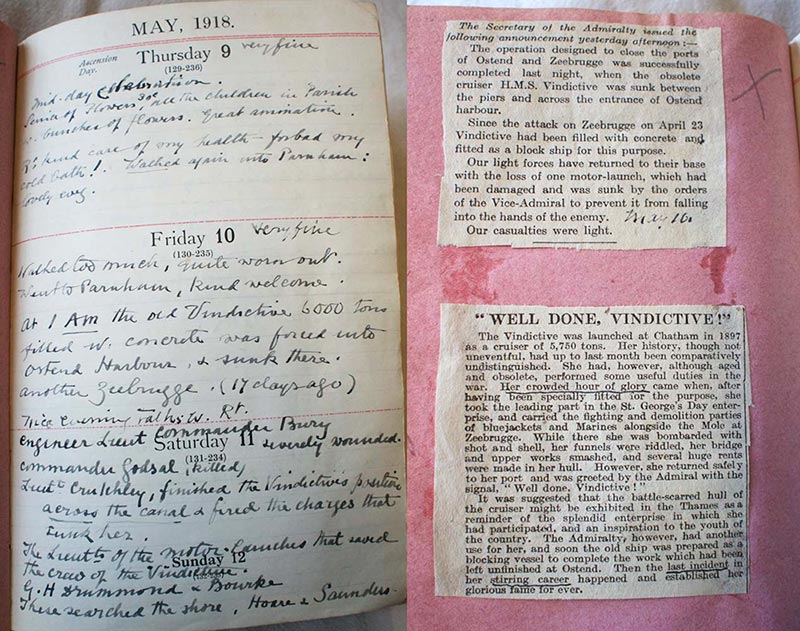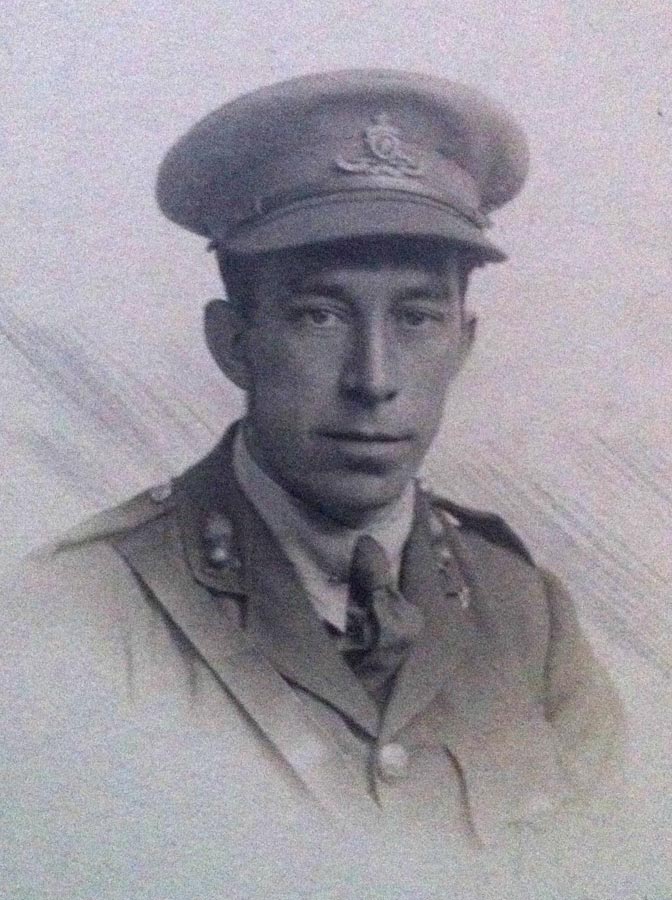Ambulance drivers
A group of First Aid Nursing Yeomanry ambulance drivers photographed #OTD 1918. Discover stories of the FANY's on #LivesOfWW1 https://t.co/sdfNSvEU81 pic.twitter.com/wnqvubwbgi
— Lives of WW1 (@LivesOfWW1) 8 May 2018
A group of First Aid Nursing Yeomanry ambulance drivers photographed #OTD 1918. Discover stories of the FANY's on #LivesOfWW1 https://t.co/sdfNSvEU81 pic.twitter.com/wnqvubwbgi
— Lives of WW1 (@LivesOfWW1) 8 May 2018
James Sansom: May 8th 1918 We march to the railway station [in Marseilles] and entrain for N. France. We spend three days and nights in the train passing through some beautiful country.
May 12th 1918 We eventually arrive at the town of Noyelles [8 days on a ship from Alex and 3 entrain] from where we march to the village of Le Titre where we go in billets and barns etc. It's the first time we have lived in any building excepting a Monastery for three years
[It's taken Portland quarryman 12 days to get from Alexandria to northern France and a very different war from the sand and camels of Egypt. After three years living under canvas he's billeted in a building at last.]
Portland quarry worker James Sansom could count himself lucky - three weeks later HMS Leasowe Castle carrying 2900 troops plus crew on the same journey would be torpedoed by a German U boat 100 miles off Alexandria with the loss of 102 lives.
A trio of Royal Navy Victoria Cross winners have had memorial paving stones unveiled in the capital. Lts Roland Bourke, Victor Crutchley and Geoffrey Drummond were all honoured for their role in the Ostend Raid. https://t.co/qRLwVokSoX pic.twitter.com/eZInqfSQCM
— Royal Navy (@RoyalNavy) May 9, 2018
Amazing location for the Commemoration of the centenary of the raid on Ostend during the night of 9/10 May 1918. 18 British servicemen died. pic.twitter.com/fv2RXvXx8i
— Alison Rose (@alisonrosefco) May 10, 2018
May 10th 1918
— Voices from 1918 (@VoicesFrom1918) 10 May 2018
Huge day in Dorset’s naval history. Cdr Godsal, from Sturminster Marshall posthumously awarded the Croix de Guerre and Lieut Victor Crutchley from Nettlecombe the VC for their part in the second raid on Ostend, @BBCDorset pic.twitter.com/UP3GnVhZx3

Lady Mary's diary May 10, 1918 At 1am the old Vindictive, 6000 tons filled with concrete was forced into Ostend harbour and sunk. Another Zeebrugge (17 days ago). Engineer Lieut Cdr Bury severely wounded.
Commander Godsal, killed, Lieut Crutchley, finished the Vindictive’s position across the canal and fired the charges that sunk her. The Lieutenants of the motor launches that saved the crew of the Vindictive were GH Drummond and Bourke.
James Sansom: May 21st 1918 Several air raids over the past few days - including a particularly bad one today, causing several casualties.

Letter from Alfred Johnson to his wife Essie:
May 22nd 1918. We are having gorgeous weather and are walking about without tunics. I expect some superior officer will shortly object and we shall have an order. "It has been brought to notice that officers are going about without tunics. This practice must cease forthwith."

Sgt Hugh Joseph Kennedy from Weymouth’s Nothe Fort Red Barracks, 2nd left back row joined RAMC’s no1 Stationary Hospital in Le Harvre in Aug 1914, and served in France until March 1919 with promotion to Warrant Officer class one
Based in Weymouth from 1910, He was one of the BEF Britain's regular soldiers dubbed ‘a contemptible little army’ by the Kaiser - the Old Contemptibles. His unit was at Le Mans until Oct 1914, then Rouen through the rest of the war.
We shall remember Sgt Kennedy and his colleagues as we drive around Le Mans on our way back to Dorset tomorrow.
— Nigel Kay (@nigelkay) 25 May 2018
May 25th 1918. Letter from Alfred Johnson to his wife Essie: "This country is an absolutely bare waste but in the last month quite a lot of wild flowers have come up, so that it is not so bad as it was in winter. There are lots of poppies and cornflowers & many small things I don't recognise. We had some lilac in the mess."
[The academic and artillery officer often read a book a day on duty, because visibility was so hazy at the OP - Observation Point. Today he was reading Barnaby Rudge by Charles Dickens, (1850)]
May 23 1918 Lieut Alfred Johnson to wife Essie:
I am on the telephone to-night, a job I don't like. One feels afraid to go really sound asleep. I see you had a pretty big raid on Sunday. He dropped a few round here last night but I was tired after a long day and never woke up.
In April he wrote: I wonder what they would do in this war without telephones. I have answered the blessed thing about 10 times in the last hour. It is very annoying to be rung up by H.Q to know why you have only fired 30 rounds, which they then discover to be the correct amount.
When visibility was poor, artillery officer Alfred Johnson read when he was at the OP [observation post] Wife Essie sent books ranging from suffrage writer May Sinclair to Tolstoy, Dickens and John Buchan. Here's what he got through in the first half of 1918:
Tom Cringles Log, Michael Scott, (1915); The Life of Wilkes, Horace Bleackley, (1917); Life of Johnson, James Boswell, (1865); Anna Karenina, Leo Tolstoy, (1877); May Sinclair [a member of the Woman Writers Suffrage League]; 39 Steps, John Buchan, (1915) ; Gibbon; The Loot of Cities, Arnold Bennett, (1903); The Stucco House, Gilbert Cannan, (1917); Land & Water, magazine; E. V. Lucas, [Collection of letters]; Martin Chuzzlewit, Charles Dickens, (1842); Leonora, Five towns Tales, Arnold Bennett (1903/ 1905); Edmond de Goncourt; Elizabeth and Her German Garden, Elizabeth von Arnim, (1898); Barnaby Rudge, Charles Dickens, (1850); The Egoist, George Meredith (1879); The Amateur Gentleman, John Jeffery Farnol, (1916).
letter to Dr Marie Stopes, postmarked Blackpool, unsigned:
You invite correspondence over your book Married Love. I beg to disagree with your conclusions which I feel come from an unhappily warped mind. I consider the book not only unwholesome but to some temperaments most harmful.
We’d love to hear from you
Let us know what you think of Voices from 1918 and our podcasts - login to the form below using Facebook.

Using this blog
Explore by day, month or person here on the blog or on our five Twitter feeds: @Voicesfrom1918 @LadyMonkswell @MarieStopes1918 @JamesSansom230 and @OliveHarcourt.
Voices from 1918 has been developed by artists Sharon Hayden and Alastair Nisbet in partnership with Wimborne Community Theatre, Dorset History Centre and the Priest’s House Museum, Wimborne with funding from the Heritage Lottery Fund.
Thanks to all who have helped us with this project: Maria Gayton and staff at Dorset History Centre where we found Lady Mary Monkswell’s diaries; Joan Cocozza, ward of nursing auxiliary Olive Harcourt; Portland Museum where we found James Sansom’s diaries; the British Library and Wellcome Libraries; Priest’s House Museum in Wimborne and Gill Horitz from Wimborne Community Theatre.
We’ve used a new simpler type of blogging system which we beta tested for indie developer Janis Rondorf of Instacks software.
Posts created as simple text files are dropped into a folder on the webserver without the need for complicated formatting making it easy to upload material quickly.
We’re always happy to share more details about our work - email us using the link at the bottom of the page and we’ll get back to you.